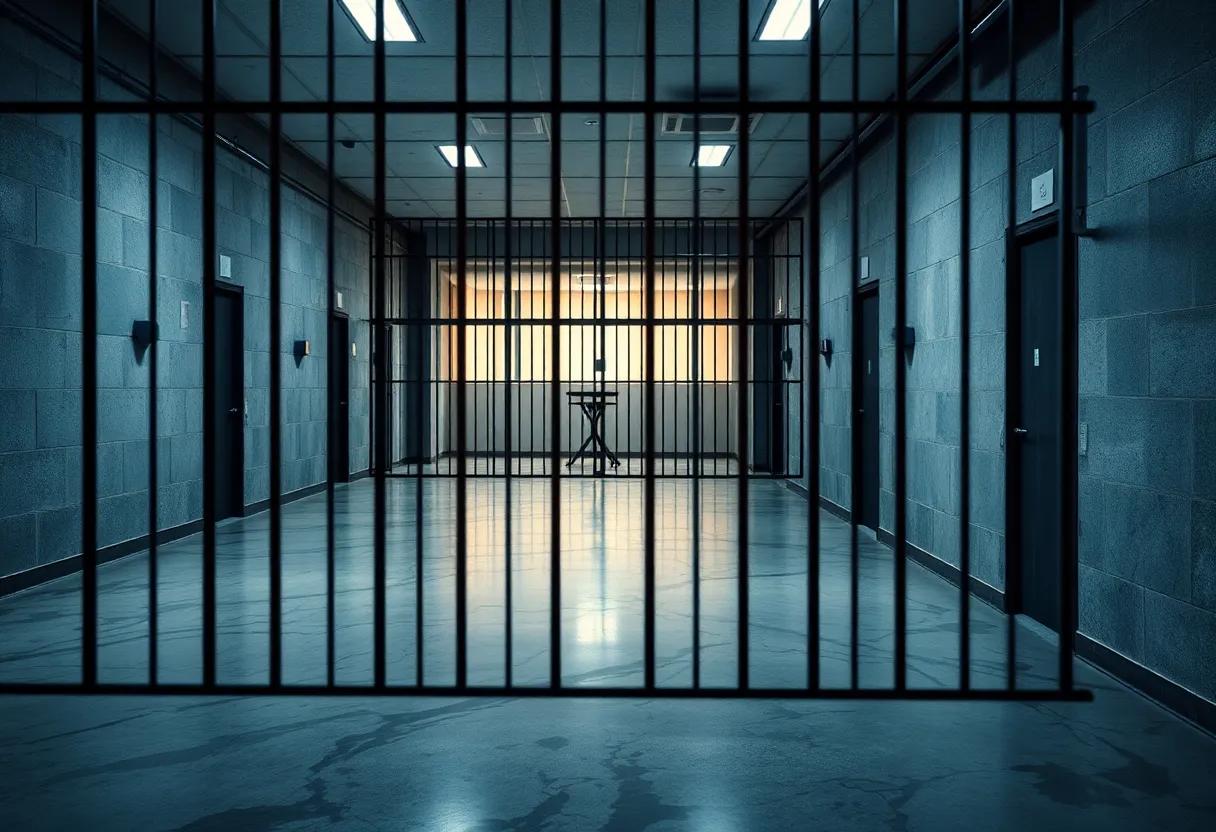

The proposed shift of U.S. criminals to El Salvador raises complex issues of justice.
During a recent meeting in the Oval Office, President Trump proposed the controversial idea of sending U.S. citizens to El Salvador’s prisons. The proposal, aimed at alleviating prison overcapacity, was supported by El Salvador’s President Bukele. The discussion followed Trump’s remarks on the conditions within El Salvador’s prison system and involved significant legal and human rights concerns. Prominent cases like that of Kilmar Abrego Garcia, who was wrongfully deported, highlight the complexities and potential repercussions of such an initiative.
In a surprising and somewhat eyebrow-raising meeting held on April 14, President Donald Trump sat down with El Salvador’s President Nayib Bukele in the Oval Office. The conversation took an unexpected turn when Trump floated the idea of sending American criminals, specifically U.S. citizens, to be accommodated in El Salvador’s prison system.
Trump suggested that El Salvador could expand its prison facilities to house what he termed “homegrown criminals.” In the midst of their discussion, Bukele eagerly expressed his support for the idea, noting that his country has sufficient space to accept more prisoners.
Interestingly, Trump took a moment to boast about the prisons in El Salvador, praising them as “great facilities.” This remark came on the heels of Bukele’s opening of the infamous Terrorism Confinement Center (CECOT) to potentially hold deported individuals from the U.S. The concept of relocating American offenders to a foreign prison has raised eyebrows, especially as both leaders exchanged jokes about the situation, with Trump finding humor in Bukele’s assertion that he could help with prison overcapacity.
One individual that recently caught attention in this ongoing narrative is Kilmar Abrego Garcia, a Maryland man who was mistakenly deported after being accused of being part of the notorious MS-13 gang. Currently, he remains imprisoned in El Salvador despite his claims of wrongful deportation. Bukele has taken a firm stance, declaring that he would not facilitate Garcia’s return to the U.S. despite a Supreme Court ruling directing otherwise. In an unusual twist, Trump acknowledged that this case stemmed from an “administrative error,” yet the administration has not acted on the court’s ruling.
Such proposals from the Trump administration have sparked significant concern among legal experts, who warn that sending U.S. citizens to foreign prisons could fundamentally challenge constitutional rights. The 14th Amendment, which guarantees due process, may pose a major roadblock. Trump remains adamant about his plan to deport violent criminals, emphasizing his openness to this unorthodox solution.
Both leaders appeared at ease during the meeting, often laughing and sharing jovial moments. However, the proposal comes amidst mounting controversy regarding the treatment of deported individuals in El Salvador’s prisons, which have been criticized by human rights organizations for their high incarceration rate and documented instances of abuse. In fact, El Salvador has one of the highest incarceration rates in the world.
Trump took aim at the media when asked about Kilmar Abrego Garcia, directing attention instead to how the proposed plan could help prevent U.S. citizens from committing crimes on American soil.
As discussions unfold regarding the logistics and legality of such an initiative, the collaboration between Trump and Bukele raises numerous questions about the future of U.S. criminal justice, deportation policies, and the treatment of individuals in foreign prison systems. While both leaders engage in a light-hearted banter, the complexities of their ideas reflect broader issues that may require serious scrutiny and debate as plans progress.
The meeting between Trump and Bukele serves as an illustration of how international relations can influence domestic policies—sometimes leading to unexpected and controversial proposals that challenge our understanding of justice, legality, and human rights.
News Summary Memphis residents are advised to prepare for a Level 2 out of 5…
News Summary The Shelby County Democrats are set to elect a new chairperson on May…
News Summary The Collierville High School swim team marked a significant achievement at the Shelby…
News Summary The iconic Clayborn Temple in Downtown Memphis was devastated by a fire on…
News Summary Memphis is launching its Art & Fashion Week, a vibrant event hosted by…
News Summary The Boys & Girls Clubs of Greater Memphis announced the closure of nine…